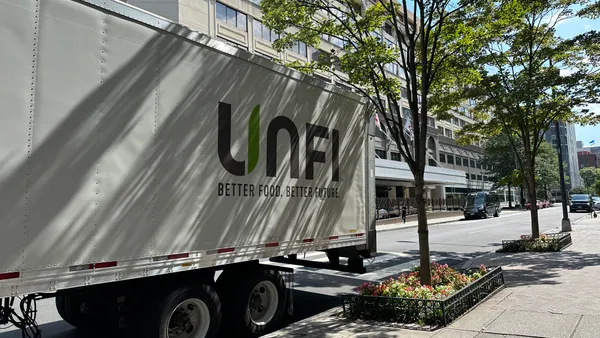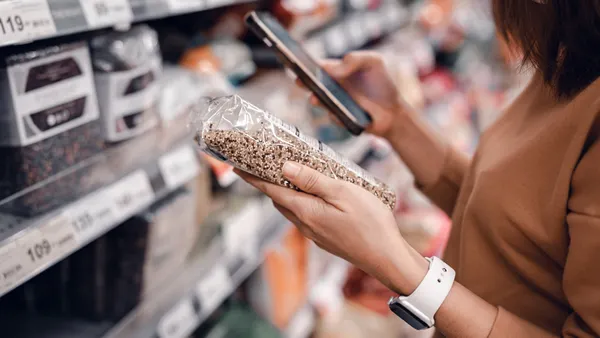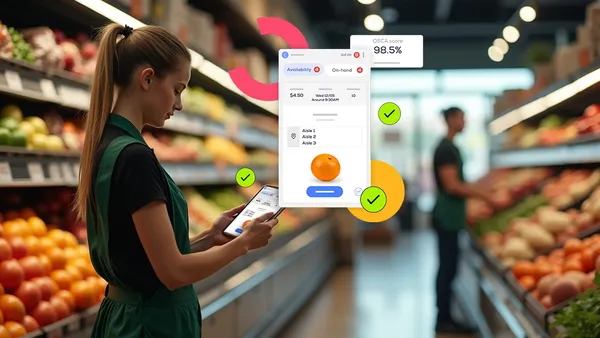Dive Brief:
- The National Grocers Association (NGA) said Thursday it has sent comments to the USDA about the agency’s proposal to allow online ordering for participants of the Special Supplemental Nutrition Program for Women, Infants and Children (WIC).
- The trade association, which represents independent supermarkets, said it supports efforts to make online purchasing possible for WIC participants and also made several suggestions for how the agency can make WIC online ordering a more accessible option for smaller grocers.
- “[The] proposed rule lacks general details and guidance for retailers on how to actually implement online ordering for WIC,” Stephanie Johnson, NGA’s vice president of government relations, said in a statement. “NGA members will require technical assistance, detailed guidance from USDA, and sufficient time to implement these changes.”
Dive Insight:
In its letter to the USDA, the NGA noted that independents play a “key role” in supporting WIC access due to their ability to provide food access to low-income residents in underserved areas.
Independent grocers account for more than a third (36.5%) of WIC-authorized stores and roughly a quarter (24.4%) of WIC redemption across the U.S., the NGA said in the letter, citing USDA Economic Research Service data.
Independents have faced difficulties, such as technical, financial, and bureaucratic hurdles, when implementing SNAP online purchasing the NGA said. To avoid repeating those issues with WIC, the USDA should provide more details and guidance for retailers on how to physically implement online ordering and internet-based transactions for WIC, according to the organization.
In its letter, the trade group outlined several suggestions for how the USDA could make WIC online ordering implementation more accessible to independents, including a request that the department clarify the definitions and requirements for brick-and-mortar grocers and e-grocers.
“NGA believes that the proposed rule definitions are not clear in differentiating between situations where an ‘internet vendor’ is tied to a physical store location versus a situation where an ‘internet vendor’ or online platform is not tied or associated with a physical location,” the trade group said.
The letter added: “NGA members are also unclear on how third-party grocery providers, such as Instacart or Grocerist, fall under the scope of these definitions.
The NGA wants the government agency to streamline authorization and certification requirements for participating vendors. Additionally, it wants guidance on product replacement and substitution in a virtual setting as well as clarifications on the types of acceptable payments for WIC online.
The trade group also wants the USDA to consider standardizing requirements for point of sale equipment, working with large retailers to make already developed solutions available to smaller retailers, making available a government-funded plug-and-play standalone solution for point of sale systems and providing grants to fund technical support.
“NGA was disappointed that there was little emphasis in the proposed rule on the impact on independent grocers ... and the need for technical assistance and funding to successfully implement WIC online,” NGA said in the letter. “USDA guidance, tools, and resources will be needed to implement WIC online transactions similar to those needed for SNAP online and EBT for WIC implementation.”
The trade group’s comments come just a few months after the USDA unveiled a proposal to remove regulatory barriers preventing WIC online ordering. Already, a handful of states have tested WIC online ordering.
The USDA has also said that making online ordering available for WIC participants will help modernize the federal assistance program, which supports low-income women, infants, and children up to age 5 facing nutrition insecurity, as well as boost equity and access to nutritious foods to WIC participants.
“Many participants in the WIC program can have limited transportation access or limited time to grocery shop, and current regulations require WIC shopping to take place physically in person,” Johnson said in a statement. “An effective WIC online program would expand access to families in need.”
The process of making WIC online ordering available for retailers and consumers “will take time, but work is well underway, and we are committed to seeing it through to completion,” Stacy Dean, deputy under secretary for the USDA’s Food, Nutrition and Consumer Services, said in a statement in February.












